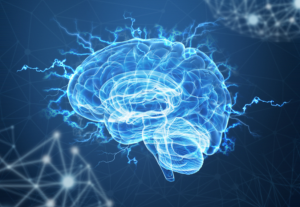 We typically view Alzheimer’s disease and other forms of dementia as a condition affecting older people. This is generally true. According to the Alzheimer’s Association, of the over 5 million people in the United States affected by Alzheimer’s disease, about 95% are 65 years and older. But this means that nearly 5% of people with Alzheimer’s are diagnosed at a younger age, in their 50s, 40s and, sometimes, even in their 30s.
We typically view Alzheimer’s disease and other forms of dementia as a condition affecting older people. This is generally true. According to the Alzheimer’s Association, of the over 5 million people in the United States affected by Alzheimer’s disease, about 95% are 65 years and older. But this means that nearly 5% of people with Alzheimer’s are diagnosed at a younger age, in their 50s, 40s and, sometimes, even in their 30s.
This is known as younger- or early-onset Alzheimer’s disease and it affects about 200,000 people in the United States. Early-onset Alzheimer’s can be difficult to diagnose as doctors usually do not expect to find Alzheimer’s in younger patients. Also, while the memory loss associated with dementia might appear as an early symptom, people with early-onset Alzheimer’s may more often experience difficulty with speech, reasoning and visual processing at the outset. With younger patients, these symptoms could be dismissed as responses to stress or overwork.
Scientists are still uncertain what causes Alzheimer’s disease, but early-onset Alzheimer’s could be influenced by genetics. Certain gene mutations that can be passed down in families may be responsible for triggering overproduction of proteins that lead to the formation of plaques that are linked with Alzheimer’s. But these mutations account for only a fraction of early-onset Alzheimer’s patients and the exact causes for the majority of cases have yet to be identified.
Of course, a proper diagnosis is essential to determine whether symptoms of memory loss or cognitive decline are due to Alzheimer’s or something else. A proper and timely diagnosis can help a patient get started with laying out strategies for coping with the disease as it progresses. Medications are available that can help with some symptoms of early-onset Alzheimer’s. Maintaining healthful lifestyle choices such as proper nutrition, sleep and exercise can also help ensure a better quality of life as the condition worsens. And early discussions with loved ones about arrangements concerning health, money and legal decisions can allow everyone to understand and follow a clear plan of action.
More about early-onset Alzheimer’s can be found on the Alzhiemer’s Association website, including a Younger/Early-Onset Alzheimer’s brochure.
